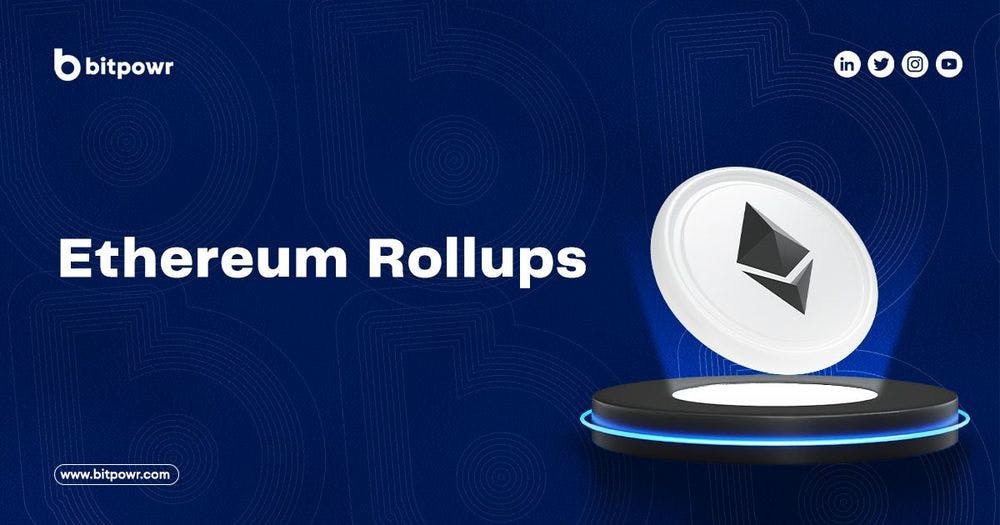What are Ethereum rollups?
Ethereum rollups are a type of layer 2 scaling solution for the Ethereum blockchain. Rollups allow for increased transaction throughput on the Ethereum network by taking transactions off the main chain and bundling them into a compact form on a separate layer. This allows for faster and cheaper transactions, which is especially important for decentralized finance (DeFi) applications and other high-volume use cases.
How do Ethereum Rollups work?
Rollups work by taking a batch of transactions and combining them into a single “rollup” transaction, which is then recorded on the Ethereum blockchain. This reduces the number of transactions that need to be processed by the Ethereum network, allowing for faster and cheaper transactions.
Ethereum rollups come in two main varieties: optimistic rollups and zero-knowledge rollups (zk-rollups).
Optimistic rollups assume that the data in a rollup is valid, and they use dispute resolution to guard against fraudulent transactions. If someone tries to submit a fraudulent transaction within a rollup, it is submitted directly to the Ethereum network for validation. Both parties involved in the transaction are required to have staked ETH, and they stand to lose money if the transaction is found to be fraudulent or if they try to deceive the network.
Zk-rollups, on the other hand, use a cryptographic technique called zero-knowledge proof to verify the validity of transactions within a rollup. This method allows someone to mathematically prove that a statement is true without revealing any additional information about the statement. In the context of Ethereum rollups, this means that only valid transactions can be included in a zk-rollup. This eliminates the need for a dispute-resolution system, as is used in optimistic rollups.
Advantages of Ethereum Rollups
- One of the main benefits of rollups is that they allow for significantly higher transaction throughput on the Ethereum network. This can be especially beneficial for decentralized applications (dApps) that require a high volume of transactions, such as games or exchanges.
- Rollups also offer improved security compared to other scaling solutions, such as off-chain payment channels. Because rollups use the Ethereum blockchain to secure transactions, they are less vulnerable to hacks and other attacks that could compromise the integrity of the network.
- Another advantage of rollups is that they are compatible with existing Ethereum infrastructure and tools. This means that developers can use their existing knowledge and resources to build on top of rollups, making it easier for them to incorporate this technology into their dApps.
Conclusion
There are currently several different implementations of rollups on the Ethereum network, each with its own unique features and benefits. Some of the most popular rollups include Optimistic Rollup, ZK-Rollup, and Validium.
Overall, Ethereum rollups offer a promising solution for scaling the Ethereum network and improving its capabilities. By allowing for faster and cheaper transactions, rollups can help make the Ethereum network more accessible and user-friendly, and pave the way for more widespread adoption of decentralized technologies.
Bitpowr supports Ethereum-based assets making it easy for you to easily build DApps , DeFi platforms & exchanges, reach out to find out how we can help your business launch and scale quickly.




